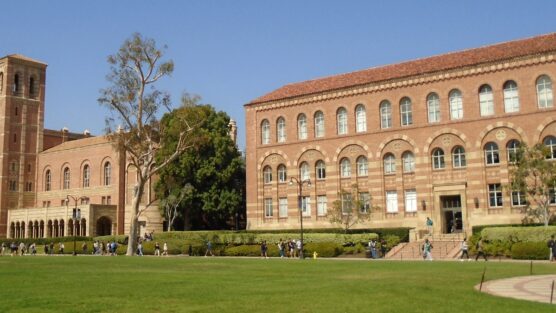Have you heard stories about students who seem super incredible and have amazing stats but then get rejected from every Top 10 or Top 20 university that they applied to? In this blog, we’re going to talk about the random deciding factors in elite admissions.
The first thing we’ll say is that over half of the students who apply to elite universities are typically 100% academically qualified. But elite schools take less than 1% of the U.S. high school student population, so you can see how these schools have a lot of applications to deal with.
So how do they decide which students to accept?
Human Bias
The first thing we’re going to get into is the human bias of your essay reader, because who reads your essay first matters a lot. And whether that person connects with you is a little bit of a dice roll. It could be that you advocate for a cause, like women’s rights, that really resonates with that person. For example, Harvard’s dean once said that he had a soft spot for students that helped take care of their siblings, because he had to do that when he was younger. If there’s a bias in your reader, that could be a potential deciding factor when there are so many qualified candidates.
Quirkiness
Having random interests is sometimes attractive to colleges and universities, mostly because it makes for more interesting admissions essays, especially at schools where they have many short admissions essays. So, if you’re a quirky person and have a funny sense of humor, doing odd or different things, whether it’s something like riding unicycles or enjoying dissecting owl pellets, could grab people’s attention and help your application look more interesting.
Geography
Where you’re from matters. If you’re from somewhere like Kentucky or Wyoming, you’re going to have a much easier time getting into elite colleges than someone from California or New York. Some colleges and universities make it a goal to try to admit somebody from every state if they can, while other colleges and universities care less about that. But it’s certainly an element that affects your application: if you’re an academically qualified person from Wyoming, you have a much better shot of getting in than a well-qualified candidate from California.
Random Major or Passion
Similarly to the quirkiness factor, being interested in something really random can sometimes boost your application. For example, if you’re not Korean but are really interested in Korean language and literature, and have gone out of your way to learn Korean, and the college or university that you applied to has a Korean department, that’s kind of the interesting thing that sometimes pushes you over the edge as an applicant when everyone else looks the same.
You can’t be disingenuous with this and can’t just pretend that you’re into a random major when you have nothing to support it on your resume and you haven’t developed that interest. If your resume shouts that you’re a computer scientist, but you say that you want to major in comparative literature, colleges might sniff that out and not buy it. But if you have developed a passion in a random area that is undersubscribed and important to a college, that can be a deciding factor.
Relationships with High Schools and Counselors
You might hear some high school counselors say that they have a good relationship with, for example, Princeton or Columbia, and what that means is that the school traditionally sends a certain number of students to that particular school. Sometimes what happens is that every year, five or ten kids from your high school get into that school, and that’s kind of just the way things usually go. The Atlantic did an article on this phenomenon a few years back, and we did see some kickback from the school that was featured in that article afterward. But this can certainly be one thing that influences your ability to get in somewhere.
Connections and Advocates Within a University
It’s unlikely that if your mom just happens to know somebody from college that is a professor from a university, you’re a shoo-in there. But if your mom does know a sociology professor there who’s writing a book and also knows that you’re interested in sociology, and she calls them up saying that you’re looking for a summer internship, which gets you a letter of recommendation from the same college you’re applying to, that can sometimes be a golden ticket. If a college or university is trying to decide whether to let you in and you have a glowing letter of recommendation from someone who is at their university, that can definitely help your application.
Donations
This is less of a feather and more of a big pot of gold, and most of us kind of know about this one. If you give half a billion dollars to a university, your kid might come off of a waitlist. So, billionaires, be aware that you can probably buy your way in, but you have to have a lot of serious cash (like, building a building kind of cash). That kind of huge level donation can be a random deciding factor, though maybe it’s not so random.
We know that this list can be discouraging to some people, and if you are feeling discouraged, we want to remind you that one, there are thousands of universities in the United States, and studies have shown that your outcomes in life have less to do with where you went and more to do with who you are. And two, there are definitely other ways to compete beyond these random things that almost seem uncontrollable.
The last thing we want to say is that you guys are all awesome, and we want you to congratulate yourself for worrying about your college future and hoping to figure this system out, because understanding this system is the first step to figuring out your place in it.




